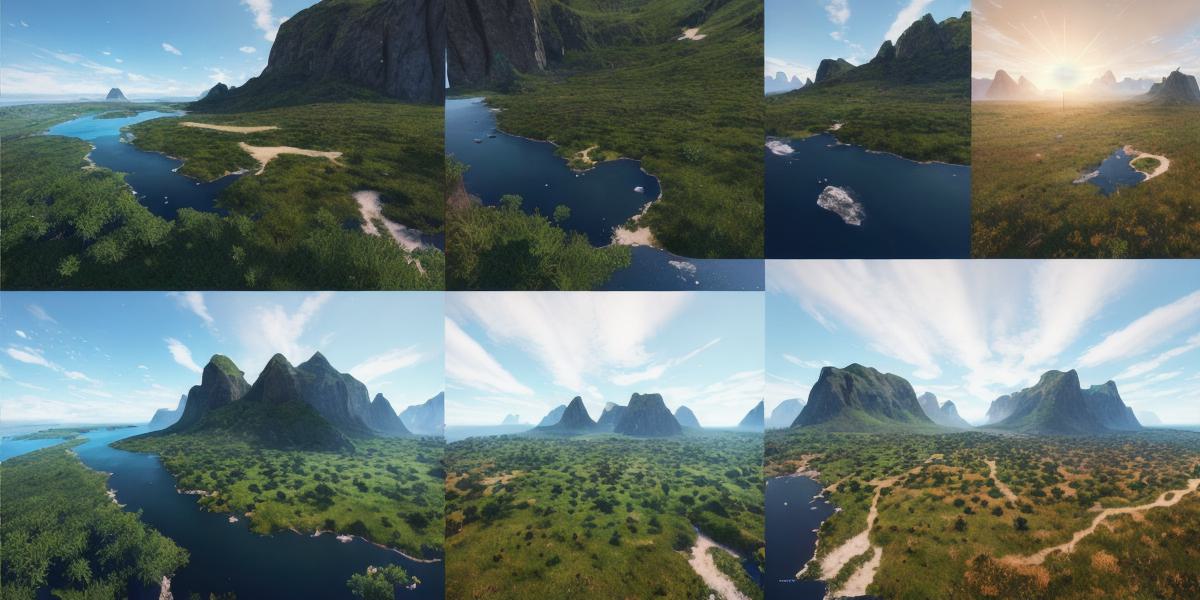Unreal vs Unity: Which Game Engine Offers Free Access?

As a game developer, you have two main options when it comes to creating games – Unreal Engine and Unity. Both are powerful and popular game engines that offer a range of features and tools for game development. However, one major difference between the two is that Unreal Engine offers free access while Unity requires payment. In this article, we’ll explore the pros and cons of each engine and help you decide which one is right for you.
Unreal Engine vs Unity: What are the key differences?
At its core, Unreal Engine is a 3D game development platform that uses Unreal Script as its scripting language. It offers advanced features such as real-time rendering, physics simulation, and support for virtual reality (VR) and augmented reality (AR). The engine is used by major studios like Epic Games (Fortnite), and it has a strong focus on the high-performance needs of PC and console gaming.
Unity, on the other hand, is a cross-platform game development toolkit that supports 2D, 3D, AR, VR, and multiplayer games. It uses C as its primary scripting language, and it offers features such as asset store, community support, and integration with social media platforms. Unity’s main focus is on providing a beginner-friendly development environment for creating games across multiple platforms.
Unreal Engine vs Unity: Which one offers free access?
Unreal Engine offers a free version of its engine called the Unreal Editor, which is available to anyone who wants to use it. The free version includes all the core features and tools needed for game development, but it has some limitations on the number of users and the size of projects that can be created. However, it’s still a great way for beginners and indie developers to get started with game development without any financial commitment.
Unity also offers a free version of its engine called Unity Hub, which is available to anyone who wants to use it. However, the free version only includes basic features, and you’ll need to upgrade to one of the paid versions if you want access to more advanced features like real-time rendering, physics simulation, and VR/AR support. The paid versions of Unity start at $39.99 per month, which can be a significant investment for indie developers with limited budgets.
Case studies and personal experiences
Many successful game studios have used both Unreal Engine and Unity to create their games. For example, Epic Games created Fortnite using Unreal Engine, while Niantic created Pokemon GO using Unity. Both engines have been used to create games with high-quality graphics, smooth performance, and engaging gameplay.
Personally, I’ve used both engines and can attest to their strengths and weaknesses. While Unreal Engine offers more advanced features and tools for PC and console gaming, it can be more difficult to use and requires more technical expertise. Unity, on the other hand, is more beginner-friendly and has a wider range of features and tools that make it easier to create games across multiple platforms.
Comparing Unreal Engine and Unity
When comparing the two engines, there are several key factors to consider. These include performance, ease of use, cross-platform support, and cost.
Performance: In terms of performance, both engines offer high-quality graphics and smooth gameplay. However, Unreal Engine’s focus on PC and console gaming makes it better suited for high-performance games that require advanced features like real-time rendering and physics simulation.
Ease of use: Unity is generally considered more beginner-friendly than Unreal Engine, as it offers a wider range of features and tools that make it easier to create games across multiple platforms. However, both engines can be challenging for beginners with limited technical expertise.
Cross-platform support: Both engines offer cross-platform support, allowing developers to create games that run seamlessly across multiple devices and operating systems. However, Unity’s focus on mobile development makes it better suited for creating games that are optimized for mobile devices.
Cost: Finally, the cost is a significant factor to consider when choosing between the two engines. Unreal Engine offers a free version of its engine, but you’ll need to upgrade to a paid version if you want access to more advanced features like real-time rendering and physics simulation. Unity also has a free version, but you’ll need to upgrade to one of the paid versions if you want access to more advanced features like VR/AR support.
Thoughts and conclusions
Ultimately, the choice between Unreal Engine and Unity will depend on your specific needs and budget as a game developer. If you’re a beginner or indie developer with limited financial resources, Unity may be the better choice due to its beginner-friendly features and lower cost. However, if you’re looking for high-performance features like real-time rendering and physics simulation, Unreal Engine may be a better option.
Regardless of which engine you choose, it’s important to remember that game development is a complex process that requires technical expertise and creativity. By choosing the right engine and investing in your skills and resources, you can create a successful and engaging game that resonates with your target audience.
FAQs
- What are the main differences between Unreal Engine and Unity?
- Unreal Engine is a 3D game development platform that uses Unreal Script as its scripting language and focuses on PC and console gaming, while Unity is a cross-platform game development toolkit that supports 2D, 3D, AR, VR, and multiplayer games using C as its primary scripting language.
- Does Unreal Engine offer free access?
- Yes, Unreal Engine offers a free version of its engine called the Unreal Editor, which includes all the core features and tools needed for game development, but has limitations on the number of users and the size of projects that can be created.
- Does Unity offer free access?
- Yes, Unity also offers a free version of its engine called Unity Hub, which includes basic features and requires payment for more advanced features like VR/AR support.








